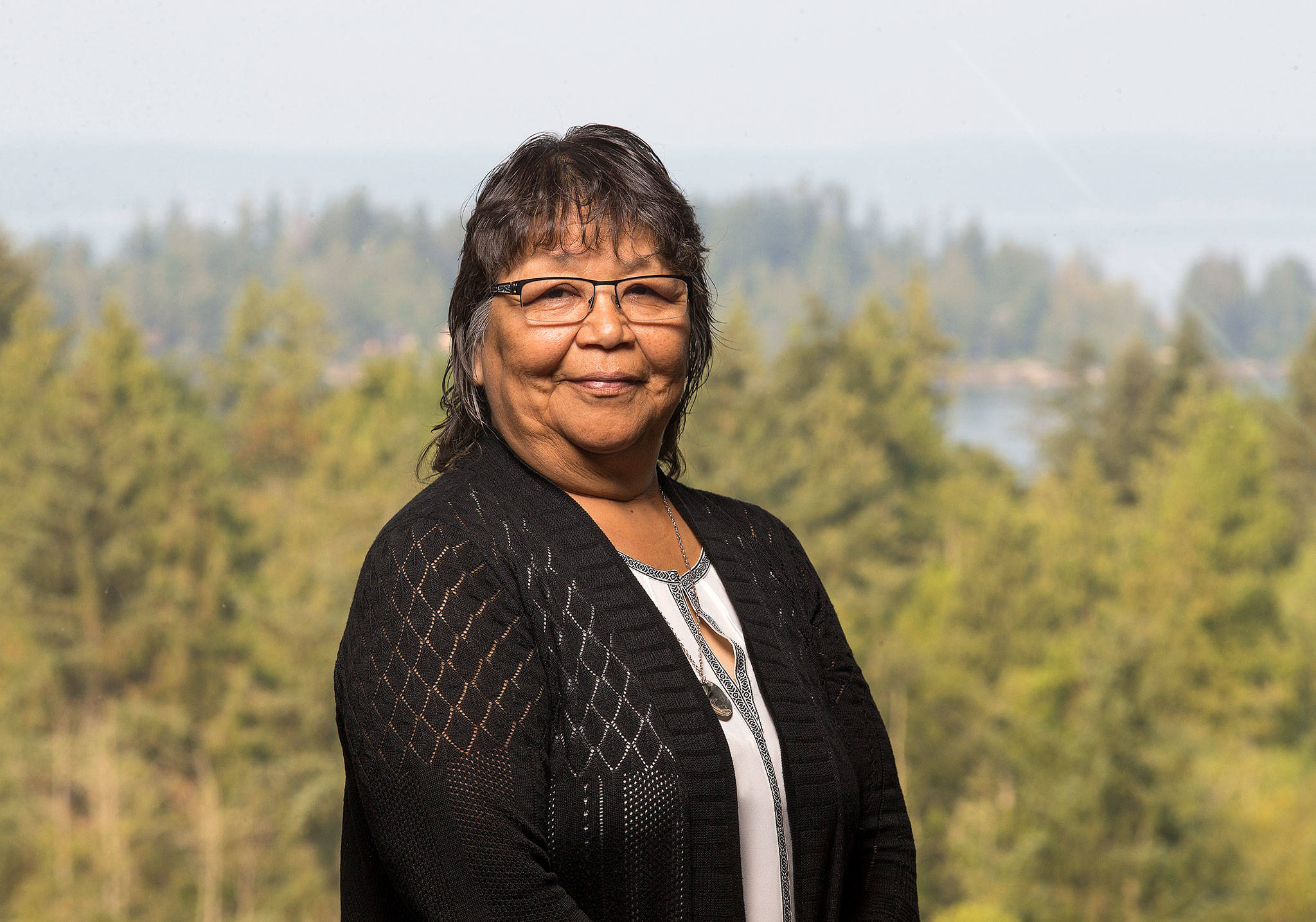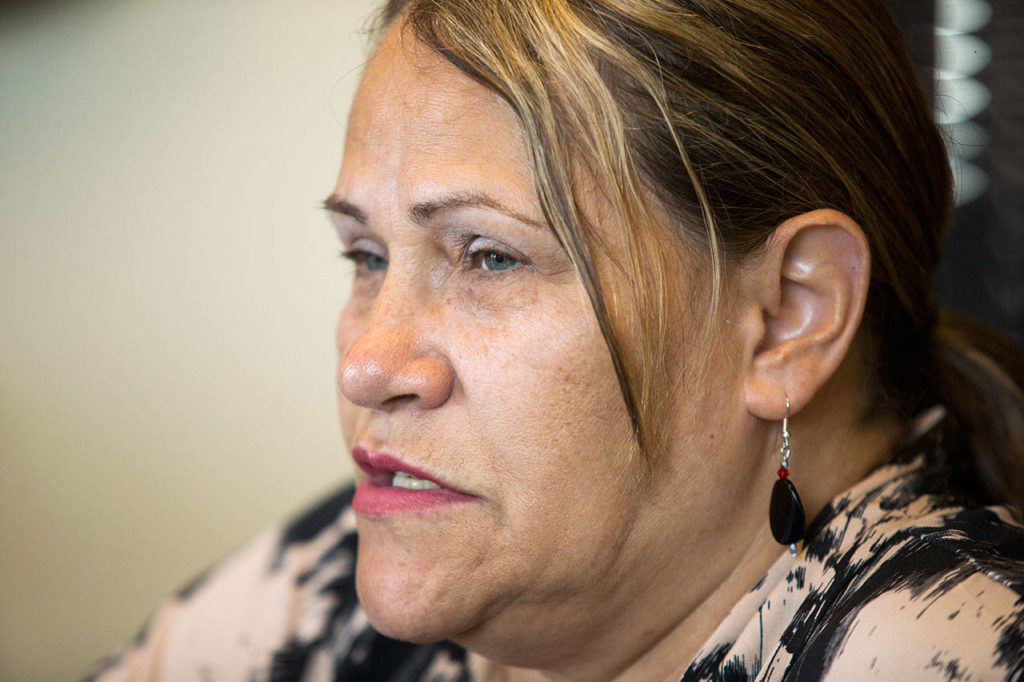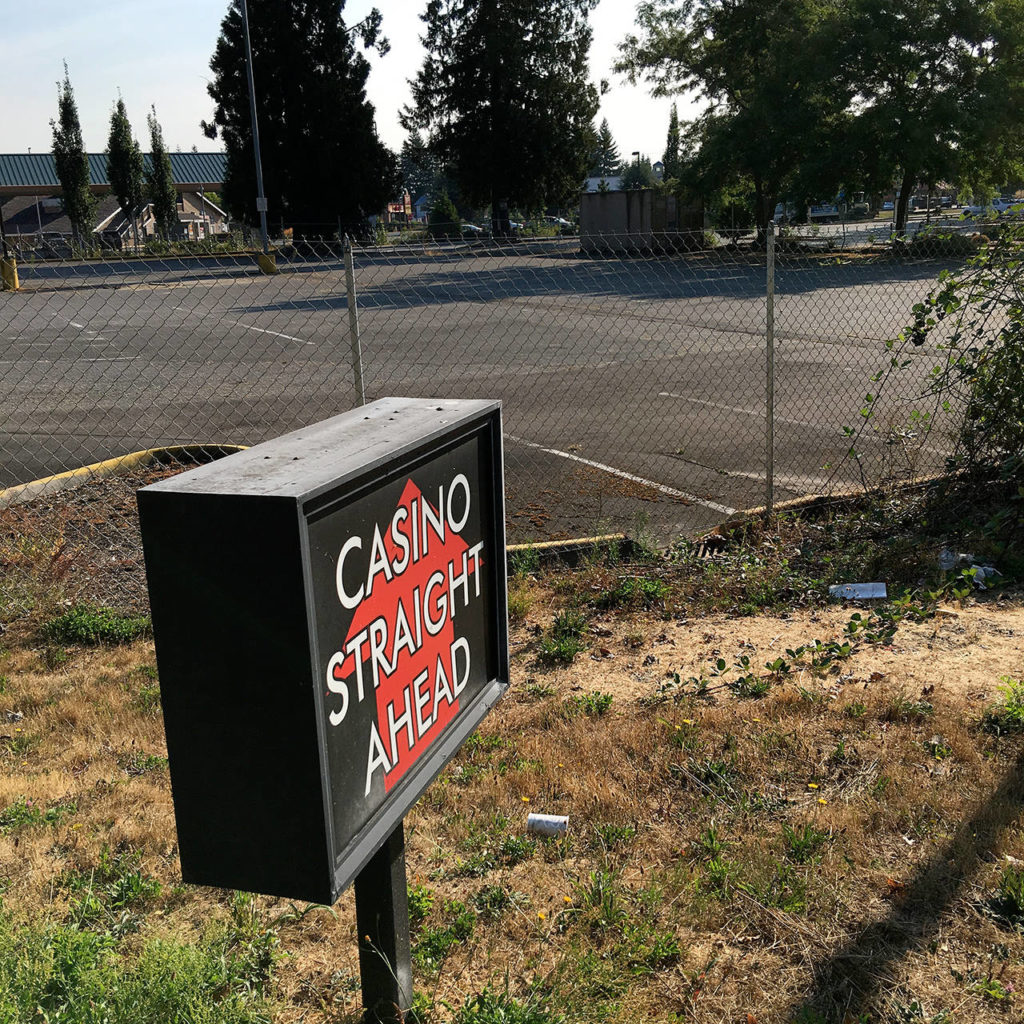The Tulalip Tribes plan to break ground later this year on a $100 million replacement for Quil Ceda Creek Casino.
It’s the next big project for the tribes, which have grown into an economic powerhouse and one of the largest employers in Snohomish County.
The 110,000-square-foot casino — which is being called informally QCC2 — will be built directly across the street from the existing casino at 6410 33rd Ave. NE, Tulalip.
The casino will feature new entertainment and dining options, a spacious gaming floor and a 1,200-stall garage with a fast-ramp access.
Tulalip Tribes chairwoman Marie Zackuse sees it complementing Tulalip Resort Casino, which sits about three miles north and draws visitors from all over the West.
“It’s time for a new one,” Zackuse said. “We’re going to keep it as the locals’ casino and cater to what they like. It will be more entertainment and more food venues, but keeping that feel for the locals.”
By comparison, QCC2 will be only a little less than two-thirds the size of the 192,000-square-foot Tulalip Resort Casino.
The footprint for the new Quil Ceda Creek Casino covers 15 acres and will be built on land now occupied by the old Arby’s at 6328 33rd Ave. NE as well as the Tulalip Court and police department at 6103 31st Ave.
The tribal courts and police department are going to move into the former Hewlitt-Packard building on 31st Street, which is undergoing an extensive remodel.
“The courthouse and police department, their area has doubled and it’s beautiful,” said Teri Gobin, vice chairwoman for the tribes. “It’s going to be really nice when we get done with it.”
If all goes as planned, the tribes will start work on the new Quil Ceda Creek Casino later this year. It will be finished in late 2018 or early 2019.
After it opens, the tribes will tear down the casino across the street. What will open there?
“To be announced,” Gobin said. “We have dreams in our head, we all have dreams, we all have these visions, we have to be together to make sure we’re together in our vision.”
Marysville Mayor Jon Nehring said the city has known for years the tribes have been planning to replace Quil Ceda Creek Casino.
In the past year, the city has become aware that the project was imminent.
It’s important to note that the city of Marysville receives no revenue from these projects, Nehring said.
“That being said I full recognize that there are benefits with jobs and services and economic opportunity for both people in Marysville and Tulalip,” Nehring said. “We view ourselves as a close knit community and a lot of our partnerships with the Tulalips are built around trying to find ways to benefit both sides of the freeway.”
The city does benefit — and tries to capitalize — on secondary visits from people headed to the casinos or the outlet mall.
He notes that there is one five-story hotel under construction; two more multiple-story hotels are in the permitting phase in Marysville. All the hotels are in close proximity to the casinos.
The new casino shows the tribes’ continued growth as one of the economic engines in the county, said Patrick Pierce, CEO and president of Economic Alliance Snohomish County.
He said the tribes have become a draw not just with the two casinos, but also Seattle Premium Outlets mall and other surrounding businesses.
“I’m a fan of the quote, ‘When it comes to economic development, they’ve been doing this for hundreds, if not thousands of years,” Pierce said. “I have a lot of respect for what they do.”
The tribes opened the Quil Ceda Creek Casino — it was initially called Tulalip Casino — 25 years ago.
The casino featured roulette, blackjack and poker and cost $2.5 million. Over time, the tribes have grown their offerings, building the Tulalip Resort Casino in 2004 and adding a 12-story hotel in 2008 at Quil Ceda Village.
Still the tribes kept Quil Ceda Creek open, saying it serves an entirely different clientele.
Tulalip Resort Casino attracts people regionally with many customers coming from Seattle and Vancouver, B.C. Quil Ceda Creek attracts Snohomish County patrons.
“My mom goes there all of the time,” Zackuse said. “She’s 89. She loves being able to be dropped off right there. She only has to go a little way and she’s in her seat.”
Quil Ceda Creek Casino started small, but was added to over the years.
“It’s an old building,” Zackuse said. “We’ve built on it and taken it apart and built on it. It’s time to have that locals’ good casino. They deserve that, the customers.”
When designing the new casino, the tribes surveyed customers of Quil Ceda Creek to find out their preferences.
While many details aren’t being released just yet, Zackuse and Gobin said QCC2 will include top-end food options with reasonable prices in a food court setting.
It will also include a state-of-the-art smoke filtration system, an even better one than the Tulalip Resort Casino.
And the tribes will be hiring more people to staff the new casino.
”It will be a significant amount of new employees that will be coming on,” Gobin said.
The Tulalip Tribes with 3,700 employees are the third largest employer in the county, as well as the biggest public employer. Gobin, who once headed the Tribal Employment Rights Office, notes that most of those employees do not belong to the tribe.
“About 68 percent of our workforce is nontribal,” Gobin said. “What our businesses have done, what the casino has done, has not only benefited our community, it’s also benefited the surrounding communities and all of those businesses that have come up.”
Revenues from the casinos and lease payments from businesses at Quil Ceda Village also pay for programs that benefit tribal members.
By expanding Quil Ceda Creek Casino, the tribes are hoping to increase revenues to continue and expand programs.
“What we’re doing with this is we have to increase our business revenues to accommodate the services that we provide through our government,” Gobin said. “That’s why we’re driven — the business committee — to find future revenues so we can take care of our elders, our children, our education for our people and our health care.”
Through money from the casinos and Quil Ceda Village, the tribes have opened the Hibulb Cultural Center, an Early Learning Academy for their children and a clinic for their health care needs. They’re also talking about a new gathering hall for the tribes. The Tulalips also donate millions each year to charities both on and off the reservation.
Gobin also has a special place in her heart for the Tribal Employment Rights Office, which educates and trains tribal members. One program trains 25 students twice a year in a pre-apprenticeship program. It’s accredited through South Seattle College and Renton Technical College. The program even has received a grant from the W.K. Kellogg Foundation, Gobin said.
“By improving the lives of these clients, we’re improving the lives of their children,” she said.
The program trains members of any tribe in construction skills. Participants have built 14 tiny houses for the Low Income Housing Institute in Seattle.
Gobin would like to see the program venture into solar panel manufacturing and repair and start retrofitting tribal buildings with solar power.
This is what was envisioned by earlier tribal councils who set aside the land for Quil Ceda Village and planned the first casino and later the Tulalip Resort Casino, Zackuse said.
Now the next big project is building a new Quil Ceda Creek Casino.
In the future, the tribes need to look at what else can happen either in the old casino space, at Quil Ceda Village or north of the Seattle Premium Outlets mall.
“We were able to see a dream come true that our ancestors had for the future,” Zackuse said. “Now our charge is to do the same for our future generation.”
Talk to us
> Give us your news tips.
> Send us a letter to the editor.
> More Herald contact information.



























